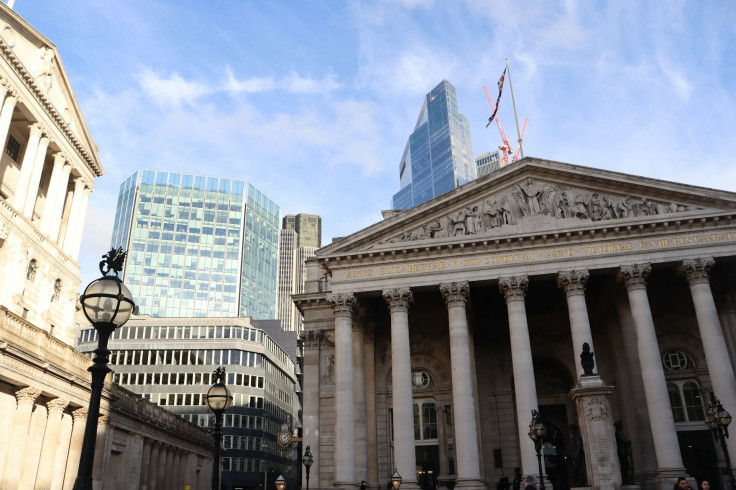What's The Bank Windfall Tax: UK Major Banks' Shares Tumble Following Calls to Tax Bank Profits

UK lenders slid on Friday after the Institute for Public Policy Research (IPPR) urged the Treasury to tax banks' income from interest paid on reserves created by quantitative easing (QE).
The proposal, branded a 'QE reserves income levy', is pitched to raise approximately £8 billion a year and help offset taxpayer losses that the IPPR estimates at roughly £22 billion annually from QE-related costs.
What is IPPR Proposing
In its latest report, IPPR has urged the UK government to introduce a new 'QE reserves income levy" on major banks, aiming to raise around £8 billion annually. The think tank argues that lenders are reaping windfall gains from interest paid by the Bank of England on reserves accumulated during quantitative easing. At the same time, taxpayers face losses of about £22 billion each year from the same programme.
IPPR suggests that these two policies could save the taxpayer over £100 billion over the course of this parliament, providing the government with much-needed fiscal headroom and enabling it to support households.
Recouping Windfalls
Carsten Jung, associate director for economic policy at IPPR, noted that many critics argue that flaws in the way quantitative easing was set up have turned it from a policy meant to stimulate the economy into a costly burden on the public purse. Instead of supporting households, large sums of taxpayer money are now being channelled into commercial banks through interest payments on reserves.
This has raised concerns that, at a time when many families are grappling with higher living costs, government resources are disproportionately benefiting bank shareholders rather than easing wider economic pressures.
'This is not how QE was meant to work – and no other major economy does it this way. A targeted levy, inspired by Margaret Thatcher's own approach in the 1980s, would recoup some of these windfalls and put the money to far better use – helping people and the economy, not just bank balance sheets,' Carsten said.
Bank Shares Tumble Sharply
The Guardian reported that the proposal wiped almost £8bn off the sector's market value in a single day, with NatWest tumbling 5%, Lloyds falling 4.5%, Barclays down 3.6%, and HSBC slipping more than 1%.
According to the Financial Times, the sell-off reflected investor fears that the levy could become a recurring cost, undermining profitability and dampening dividends. Analysts also warned the plan risked conflicting with Labour's pro-growth narrative, adding to uncertainty over the sector's future.
Proposal Could Damage Banking Sector
Bank executives reacted swiftly to the IPPR's proposal for a new levy on banks' quantitative easing reserves, warning it could damage the sector's ability to support the broader economy. Barclays Chief Executive C.S. Venkatakrishnan cautioned that such a tax would undermine Labour's growth agenda by curtailing lending capacity and investor confidence.
Meanwhile, industry body UK Finance echoed these concerns, arguing the levy would make the UK less competitive as a financial centre.
'Banks based here already pay both a corporation tax surcharge and a bank levy. Adding another would make the UK less internationally competitive and run counter to the government's aim of supporting the financial services sector to help drive growth and investment in the wider economy,' a UK Finance spokesperson said.
Critics within the sector maintain that imposing another tax burden on banks risks deterring investment and weakening London's global standing.
Windfall Tax's Potential High Stakes
Together, the IPPR's proposal, the sharp market reaction, and the strong pushback from bankers highlight the high stakes surrounding any potential windfall tax on the UK's largest lenders. While proponents argue it would deliver fairness by redirecting bank windfalls to ease fiscal pressures and support struggling households, opponents warn of unintended consequences for investment, competitiveness, and economic growth.
What To Watch Next
The Treasury has not adopted the proposal. Any move to tax QE-linked income would need to balance fiscal gains against possible effects on lending, dividends and the UK's standing as a financial centre. Markets will track Budget signalling and whether officials also consider technical alternatives, such as 'tiered' reserves, which the Bank has previously resisted.
© Copyright IBTimes 2025. All rights reserved.





















